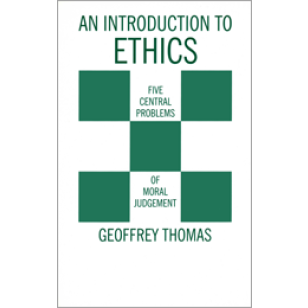An Introduction to Ethics
A comprehensive yet concise introduction to central topics, debates, and techniques of moral philosophy in the analytic tradition, this volume combines a thematic, issue-oriented format with rigorous standards of clarity and precision. Thomas introduces fundamental concepts and terms, proceeding through a step-by-step exploration of five general areas of debate: the specification of moral judgment; moral judgment and the moral standard; the justification of moral judgment; logic, reasoning, and moral judgment; and moral judgment and moral responsibility. Key historical and contemporary figures in moral philosophy, including Plato, Aristotle, Kant, Hume, Mill, Hare, Ross, Nagel, Foot, Stevenson, and Dancy, are used effectively as a means of examining the topics themselves.
Co-published in the U.K. by Gerald Duckworth and Company, Ltd.
A comprehensive yet concise introduction to central topics, debates, and techniques of moral philosophy in the analytic tradition, this volume combines a thematic, issue-oriented format with rigorous standards of clarity and precision. Thomas introduces fundamental concepts and terms, proceeding through a step-by-step exploration of five general areas of debate: the specification of moral judgment; moral judgment and the moral standard; the justification of moral judgment; logic, reasoning, and moral judgment; and moral judgment and moral responsibility. Key historical and contemporary figures in moral philosophy, including Plato, Aristotle, Kant, Hume, Mill, Hare, Ross, Nagel, Foot, Stevenson, and Dancy, are used effectively as a means of examining the topics themselves.
Reviews:
“An excellent introductory text to the wide variety of issues in ethical theory and meta-ethics today. Encyclopedic, yet brief, Thomas’ book provides an extremely valuable resource to which to return time and again for help in navigating the current discussion.”
—David Horner, Biola University
“An impressive piece of work—systematic, judicious, comprehensive. . . . The author’s language is clear and spare. . . . [he] shows good judgment and no tendency to be cowed.”
—Peter Railton, The University of Michigan

